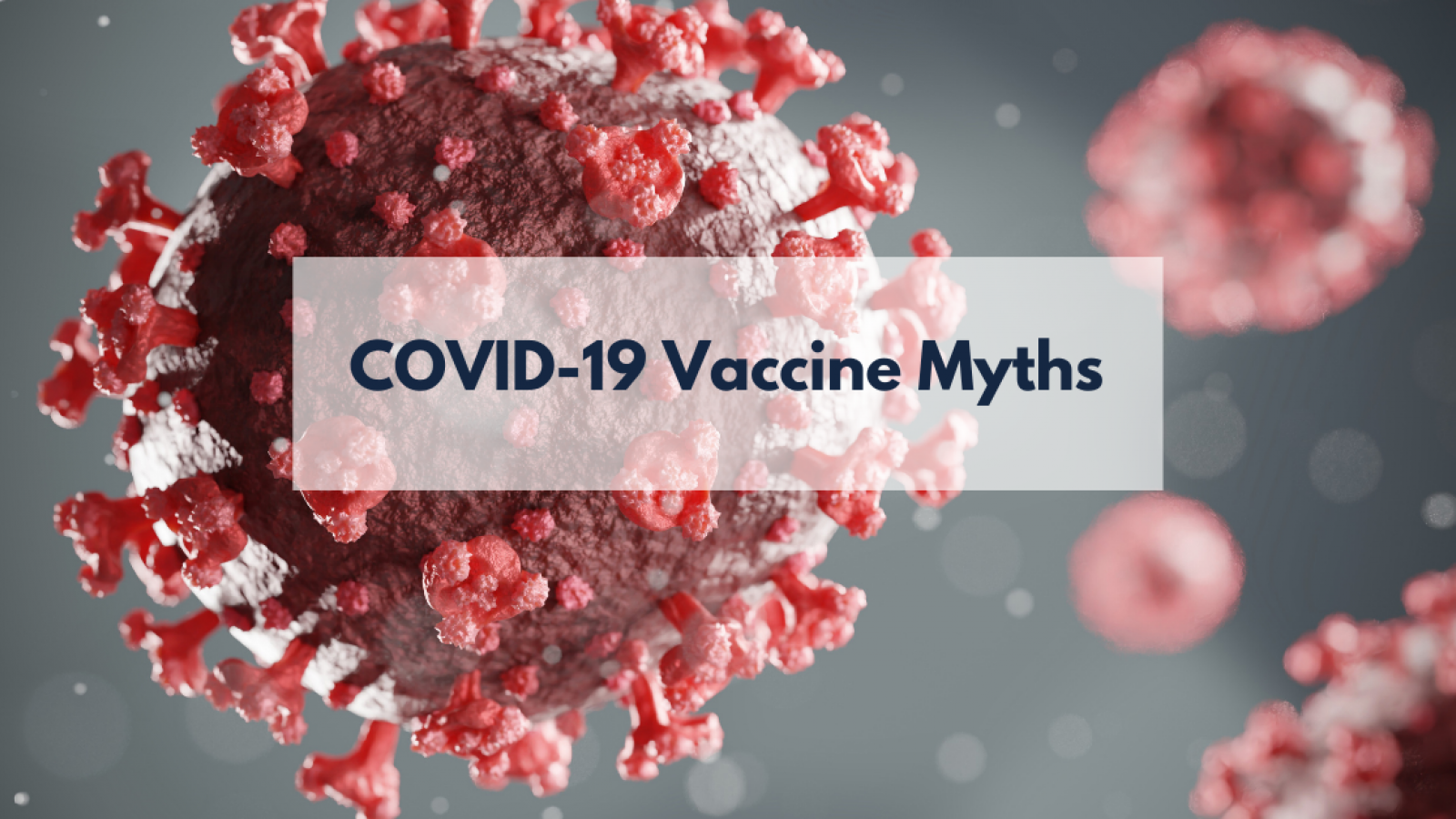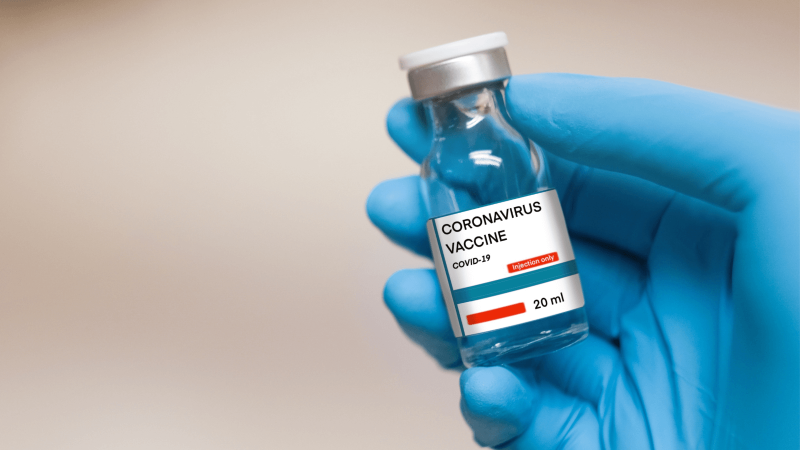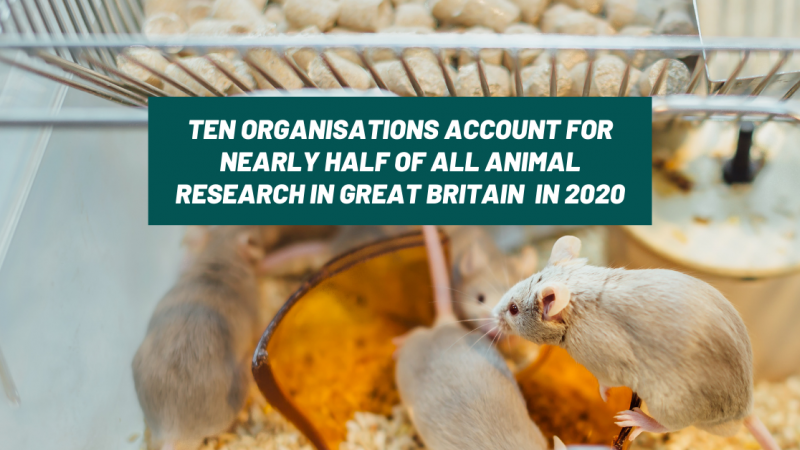
I will confess that, when the effects of Covid started to bite in March of 2020, I wondered whether any anti-animal research activists were reconsidering their life choices as animal work sprung to the forefront of the global research effort.
Work that had been done 15 years ago using mice was now being licensed to create the Moderna and Pfizer vaccines. Specially bred mouse embryos were being defrosted at the not-for-profit Jackson labs. The work of the Oxford University team, which developed its vaccine using ferrets and primates at the Public Health England laboratories, was suddenly in the news. All of those claims by activists – that animal studies were misleading and wouldn’t lead anywhere or would be coincidence if they did – were being disproven once again, but in real time.
Sadly, rather than adjust their worldview, activists doubled down on misinformation. Some initially wrote to the World Health Organisation to claim, wrongly, that animal studies would be fruitless. Several argued, wrongly, that some required animal tests were skipped. Although some myths have come and gone in a flash (Covid caused by 5G anyone?) others persist, including the new idea that the vaccines haven’t been properly tested. For their part, activists claimed that no vaccines that performed well in animal tests worked in humans, when all of the current Covid vaccines tested successfully in animals before doing the same in humans.
With that in mind, we offer a quick rundown of the most prevalent vaccine myths still doing the rounds and what is very wrong about them.

1. Bill Gates patented Covid/wants to put a microchip in you
The Gates Foundation donates to the Pirbright Institute, which used to be called the Institute for Animal Health. This is a research institute that specialises in diseases affecting farm animals. There are hundreds of types of coronavirus but only a handful affect humans. The Institute owns a patent on a vaccine for a coronavirus that only affects chickens. The patent is of no worry to man nor chicken alike but appears to be the basis of this conspiracy theory.
Bill Gates also suggested using a digital certificate for vaccine records, not a microchip, but that may be where this idea came from. His idea wasn't used. That said, since there's no way for a microchip to control any part of the human body, if anyone wants to inject me with one, can it please be an Intel® Core™ i9-9980HK? At least then I can remove it and use it in my computer.
2. Animal tests and safety trials were skipped in developing Covid
No tests have been skipped. Scientists have been preparing for a pandemic for many years and had already done lots of preparation. Finding volunteers for vaccine trials had already been done and the vaccine delivery method had already been developed. When the virus emerged, many human, animal and lab tests were done at the same time. In the end, more than five times more people than usual were tested on before the vaccine was approved.
Government regulators around the world said at the beginning of the pandemic that they would still require animal tests before allowing any vaccine to be given to humans. Drug makers also started making the vaccine just in case it worked, so the usual delays involved in bureaucracy, manufacturing and testing things in sequence were eliminated.
This meant the vaccine could be made in super-quick time without any corners being cut.
3. Animal tests were not needed to create vaccines
Animals are used in lots of different ways in the creation of the vaccines. Studies in mice, ferrets and primates showed that the vaccines were likely to work, and other animal tests showed the finished products were safe. Animals were also used in the basic biological research that allowed this approach in the first place.
Both the Moderna and Pfizer vaccines use messenger RNA to get your body to fight the virus. This was developed more than 20 years ago at the University of Pennsylvania using mice. Those scientists discovered a way to make medicines using RNA and patented the work. This was then licensed to the vaccine developers in 2020.
4. Vaccines are just all about profits
If profit were the only motive, vaccines would be a poor investment. The profits from treating disease are far higher than vaccinating against it.
The price for a Hepatitis B vaccine, for instance, is around £50 a dose, and that will be manufactured by a pharma company that will make a small profit from it. However Entecavir, the drug you’ll be given if you develop Hep B after foregoing the vaccine, costs £363.26 for 30 tablets. That’s just a month’s supply.
AstraZeneca, which has co-produced the UK’s flagship vaccine with Oxford University, has pledged to provide the vaccine on a non-profit basis until the pandemic has receded. This is a stance that also doesn’t track well against a belief that vaccine producers are purely profit-driven.
Meanwhile, there are costs to society of not being vaccinated such as taking up hospital beds, placing healthcare staff at unnecessary risk, and other treatment costs. One study found that the costs of failing to vaccinate are 20 times higher, with around a third of that cost borne directly by the infected individual through lost earnings and other costs.
5. MYTH: The mRNA vaccines being developed for COVID-19 will alter human DNA
Nearly every cell in your body has a factory inside for producing DNA. mRNA vaccines can ask some of these cells to produce a protein that looks like part of Covid 19 so your immune system will learn to attack it. It can’t alter your DNA.
It’s a bit like your immune system is airport security and coronavirus as a man who’s sprouted antlers from his head. The vaccine simply tells your body’s security to arrest anyone wearing antlers.
Also bear in mind - the makers of the vaccine have to take it too so are not going to make it harmful!
6. The COVID-19 vaccine has been proven to cause infertility in 97 percent of its recipients.
This is what happens if you give baboons anti-fertility drugs and has nothing to do with humans and Covid.
British YouTuber Zed Phoenix, claimed that an unnamed source at pharmaceutical company GlaxoSmithKline told him that 61 of the 63 women tested with a COVID-19 vaccine became infertile and that a separate, male-specific vaccine “resulted in decreased testicular size, drop of testosterone levels, and marked atrophy of the prostate.”
However, his statements about these vaccines were found to have been stolen word-for-word from an unrelated 1989 cancer research study into the use of anti-fertility vaccines on baboons.
7. MYTH: The COVID-19 vaccine being developed by Oxford University and AstraZeneca will turn people into crocodiles or monkeys.
Viruses are specialised in getting around our immune system and infecting the DNA factory that sits in our bodies’ cells. They put their own blueprint into the cell factory instead and make them create thousands of new viruses. Viruses can be deactivated however, by removing the viral blueprint and inserting something to help fight the disease. They now become the way for the vaccine to be delivered, a bit like an envelope that has had the original contents removed and is being re-used for a different letter.
In the case of the Oxford/AZ vaccines, the delivery mechanism is an adenovirus that usually infects chimpanzees. What the scientists have done is remove the infectious, disease-causing part of the adenovirus and replace it with instructions for the body to start building up immunity to the Coronavirus. The chimpanzee adenovirus is the way to deliver a good blueprint to the patient’s cells that helps your body recognise and eliminate Covid, but it cannot do anything to affect the patients’ own DNA and certainly can’t turn them into monkeys. Or crocodiles.
8. MYTH: The U.K. Medicines and Healthcare products Regulatory Agency (MHRA) will use artificial intelligence to monitor the safety of COVID-19 vaccines because the agency knows that vaccines are extremely dangerous.
The MHRA monitors all drugs and vaccines and has given a contract to an artificial intelligence company to help them do that. There is nothing particularly different about the Covid-19 vaccines except that the vaccination programme is enormous and so requires extra technology to monitor it.
9. The effects of Covid aren’t that bad with mortality of 1-2%
A 1-2% mortality rate is 10-20 times worse than the seasonal flu, and Covid’s transmission rate is higher than any virus in this century or the last. The numbers of people requiring hospital care also means that other patients are not getting the healthcare they need. However, death isn’t the only risk with Covid, with a lot of people left with life-changing diseases including strokes, kidney failure and breathing difficulties.
A recent study in mice discovered how the virus shuts down your cells’ powerhouse, the mitochondria, and can cause multiple organ failure as a result.

10. Vaccines contain alcohol/mercury etc
One of the most common myths about vaccines is that they contain harmful ingredients. This is always the result of a misunderstanding about chemistry.
There are different forms of alcohol, for instance, some that you can drink and others that you can’t.
The ones that you can’t are used in tiny amounts as preservatives in medicines like vaccines. For Muslims, to use the drinking kind of alcohol is forbidden, but the second kind is fine if it is not an intoxicant.
Likewise, there are harmful forms of mercury that build up in the body and ones that do not build up in the body. These harmless versions were used make vaccines work better in the past, but now vaccines contain neither form of the chemical.
Of course animals were essential to create the vaccines against Covid currently being rolled out across the world. Of course those claiming animal studies wouldn’t lead to a human application were wrong, again, and were actually wrong before they put pen to paper thanks to experiments they didn’t know had taken place years earlier.
We can’t stop trolls from making up vaccine myths, and we can’t stop animal activists making up research myths, but in both cases it’s essential that the scientific community stands up for the truth. Left unchallenged, these myths don’t go away but become somebody’s reality. There is nothing ‘ethical’ about that. Activists shouldn’t pretend that there is.
Last edited: 9 September 2025 11:37



